After the Curfew Blu-ray Movie
HomeAfter the Curfew Blu-ray Movie 
Lewat Djam Malam / Blu-ray + DVDCriterion | 1954 | 101 min | Not rated | No Release Date
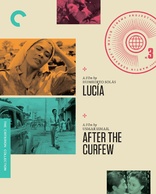
Price
Movie rating
7.1 | / 10 |
Blu-ray rating
| Users | 0.0 | |
| Reviewer | 4.0 | |
| Overall | 4.0 |
Overview
After the Curfew (1954)
Iskandar is a former freedom fighter unable to readjust to civilian life following the revolution that ended centuries of colonial rule. When he discovers that the ideals he fought for have been betrayed by a corrupt former commander, Iskandar is pushed to the breaking point.
Director: Usmar Ismail| Foreign | Uncertain |
| Drama | Uncertain |
Specifications
Video
Video codec: MPEG-4 AVC
Video resolution: 1080p
Aspect ratio: 1.37:1
Original aspect ratio: 1.33:1
Audio
Indonesian: LPCM Mono (48kHz, 24-bit)
Subtitles
English
Discs
Blu-ray Disc
Two-disc set (1 BD, 1 DVD)
DVD copy
Playback
Region A (locked)
Review
Rating summary
| Movie | 4.5 | |
| Video | 3.0 | |
| Audio | 3.5 | |
| Extras | 1.5 | |
| Overall | 4.0 |
After the Curfew Blu-ray Movie Review
Reviewed by Jeffrey Kauffman October 4, 2020 Note: This film is available as a part of Martin Scorsese's World Cinema Project, No. 3.
Martin Scorsese has been curating the World Cinema Project for around thirteen years now, and the result has been a veritable cornucopia of
international films that in some cases Scorsese’s efforts have helped save from the ravages of time (and vinegar syndrome). As of the writing of this
review, the World Cinema Project is closing in on fifty restorations that they’ve undertaken, allowing fans to view films that, as even Scorsese himself
states in some of the introductions included in this set, have been woefully underappreciated and rarely seen (even a cineaste of Scorsese’s reputation
mentions that some of these films were “new” to him courtesy of the World Cinema Project). This third volume of films aggregates six interesting
offerings that have at least some subtextual cross connections at times, but which serve as yet another example of what an incredible job the World
Cinema Project does in bringing films of undeniable merit to a wider audience.
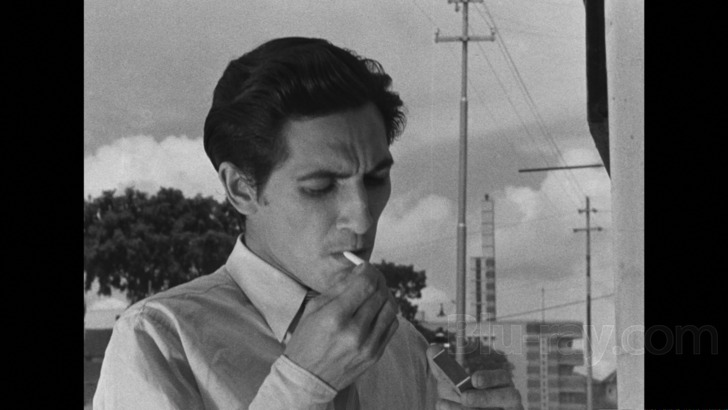
After the Curfew shares a disc with Lucía, and as with that Cuban film, this Indonesian effort has echoes of revolution resounding through it. My hunch is that many viewers will have at least incrementally more knowledge about Cuban history than Indonesian, which may in fact make After the Curfew all the more riveting, since it details an era in the nation's history fraught with intrigue and dysfunction, weirdly at the same time that the rest of the world was finally approaching something close to peace as World War II wound down. Between 1945, when Indonesia declared its independence, and 1949, when the Netherlands finally recognized that independence, there was both armed struggle and quite a bit of social unrest and upheaval.
The main character is a former soldier in the Indonesian army named Iskandar (A.N. Alcaff), who may be suffering from post traumatic stress disorder, but who is struggling to find his way in life in a post-armed services world. He's attempting to settle down with his fiancée Norma (Netty Herawaty), but work is hard to find, and perhaps made harder by Iskander's own emotional imbalances. While somewhat vignette driven, After Curfew documents Iskander tracking down several of his former cohort, in scenes that rather subtly but still viscerally present lives in a state of radical reinvention in the wake of a new political and social order being imposed on Indonesia.
After the Curfew Blu-ray Movie, Video Quality 
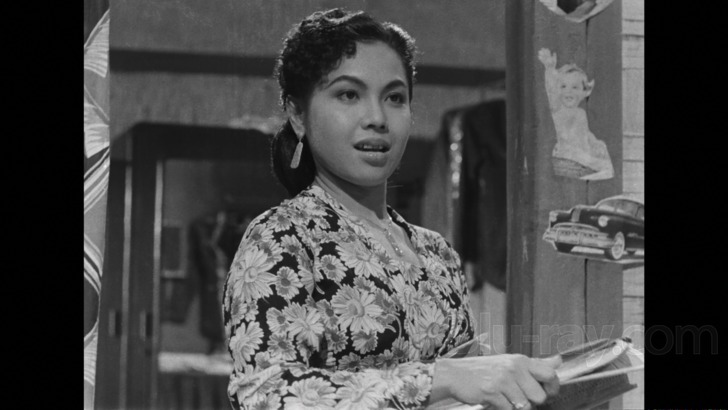
After the Curfew is presented on Blu-ray courtesy of The Criterion Collection with an AVC encoded 1080p transfer in 1.37:1. Some opening text cards offer the following verbiage on the transfer, though somewhat interestingly most of this information is presented on text cards at the end of the feature, after the final credits:
After the Curfew (Lewat Djam Malam) was restored by the National Museum of Singapore and the World Cinema Project, in association with Knfiden Foundation and Kineforum of the Jakarta Arts Council.As is alluded to above, and which can be seen in several of the screenshots accompanying this review, this is one of the more heavily damaged looking presentations in this set, and my score reflects the pretty ubiquitous state of not just scratches and dirt, but "mould" (to use the UK spelling), which is repeatedly visible throughout the film. You can see examples in screenshots 10, 12, 13 and 15, though due to the exigencies of our screencapture software, I actually wasn't able to get some of the worst moments since, while bad, they're sporadic and momentary. When not hobbled by these issues, this is a nicely detailed looking presentation, with consistent contrast and nicely modulated gray scale. Grain can be heavy at times, but resolves naturally throughout.
The film was restored at L'Immagine Ritrovata from the original film elements preserved and collected at Sinematek Indonesia.
Special thanks to the family of Usmar Ismail.
Lew at Djam Malam / After the Curfew has been digitally restored using the original 35 mm camera & sound negatives, interpositive, duplicate negative and positive prints preserved at the Sinematek Indonesia. The film prints were scanned at 4K resolution and restored at 3K resolution.
The digital restoration began by focusing on fixing instability and flicker followed by the meticulous work of dirt removal, carried out both by automatic tools and by a long manual process of digitally cleaning each image (frame by frame). Due to high humidity and temperature, the film suffered from signs of mould and vinegar syndrome - the laboratory took great pains to address these problems without damaging the definition of the photographic output, specifically with regards to details and faces. Nevertheless, several mould stains could not be digitally removed due to the movement of the shot during certain segments of the film. These are visible as vertical white strains [sic] which appear periodically through the film.
The original sound was digitally restored using the 35 mm original soundtrack negative. Two reels were missing from the soundtrack negative, and were therefore taken from the combined interpositive. The last 2 minutes of reel 5 were missing from these elements, but were recovered from a positive copy which surfaced at a later stage. The soundtrack has been scanned using laser technology at 2K definition. The core of the digital sound restoration consists of several phases of manual editing, high resolution de-clicker & de-crackle, and multiple layers of fully automated noise reduction.
The restoration was completed at L'Immagine Ritrovata laboratory in March 2012.
After the Curfew Blu-ray Movie, Audio Quality 
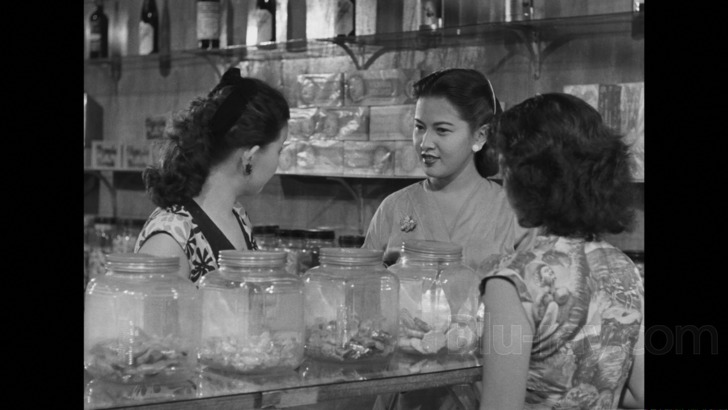
After the Curfew features an LPCM Mono track in the original Indonesia. The audio side of things is in quite a bit better shape than the video, though there are still occasional minor signs of age related damage in the form of slight hiccups like pops. The film has a really interesting score, which I'd liken to gamelan music, and that tends to sound fine, if a bit boxy. Dialogue is rendered cleanly and clearly throughout the presentation. Optional English subtitles are available.
After the Curfew Blu-ray Movie, Special Features and Extras 
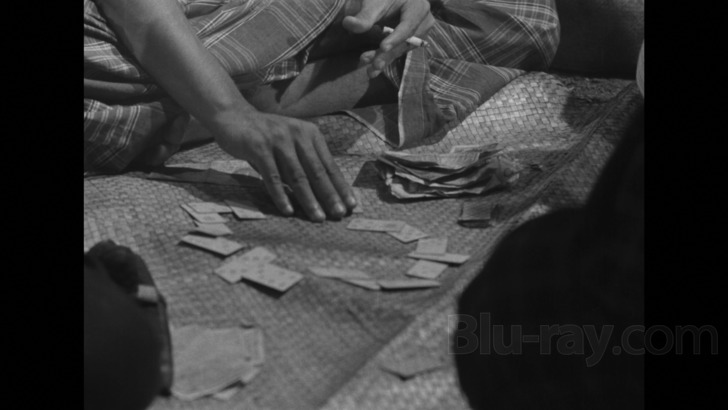
- Martin Scorsese Introduction (1080p; 3:19)
- J.B. Kristanto (1080p; 19:16) is a really fascinating piece with the Jakarta based Journalist, who talks about helping to set up what sounds like the Indonesian version of the IMDb. In Indonesian with English subtitles.
After the Curfew Blu-ray Movie, Overall Score and Recommendation 
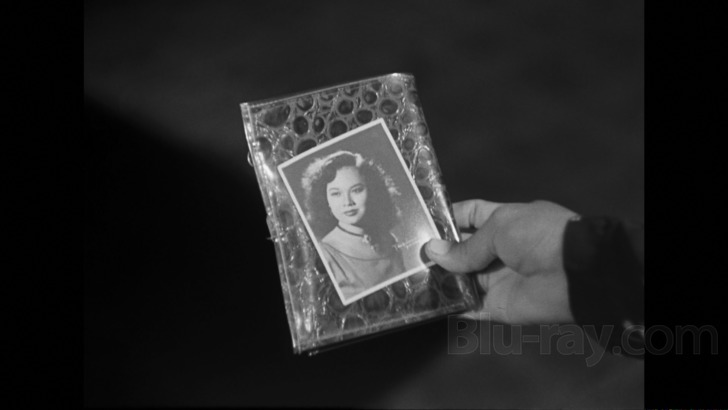
After the Curfew is understandably considered one of the classics of Indonesia cinema, and it's a bracing depiction of people trying to adjust to a new, ostensibly "improved", life that nonetheless has arguably more challenges than they might have expected. The film has a really visceral feel for its time and place. The restoration work done on this is heroic, but there are still manifest signs of damage. With caveats noted, Recommended.
Similar titles
Similar titles you might also like
(Still not reliable for this title)

Downpour
رگبار / Ragbar
1972

Dos Monjes
Two Monks
1934

Soleil Ô
Oh, Sun
1967

Lucía
1968

Pixote
Pixote: A Lei do Mais Fraco
1980

Taipei Story
青梅竹馬 / Qing mei zhu ma
1985

Limite
1931

Law of the Border
Hudutlarin Kanunu
1966

A River Called Titas
Titash Ekti Nadir Naam
1973

Redes
1936

Touki Bouki
1973

Revenge
Mest / The Red Flute
1989

Dry Summer
Susuz Yaz
1963

Chess of the Wind
شطرنج باد / Shatranj-e baad
1976

Prisioneros de la Tierra
Prisoners of the Earth
1939

Muna Moto
The Child of Another
1975

Sambizanga
1972

Insiang
1976

Kalpana
1948

Two Girls on the Street
Két lány az utcán
1939